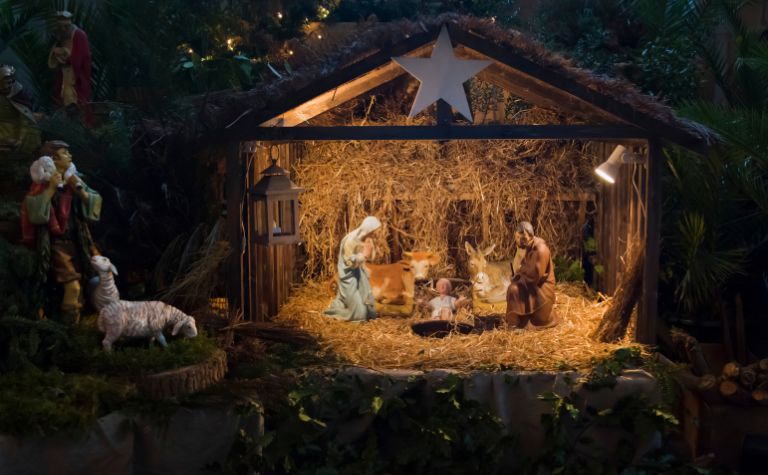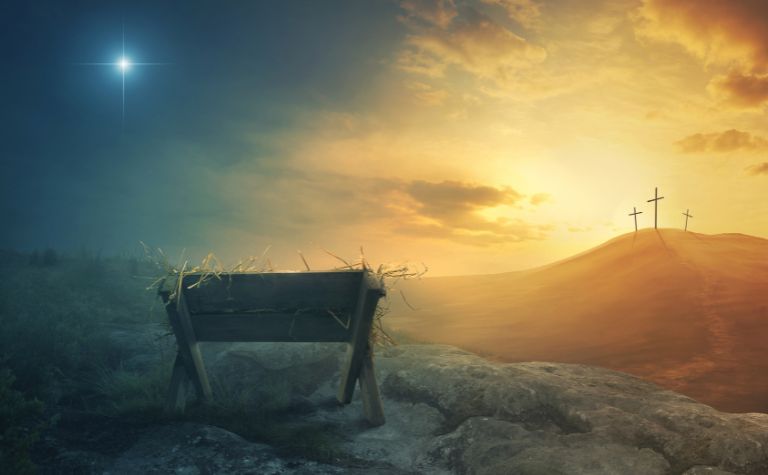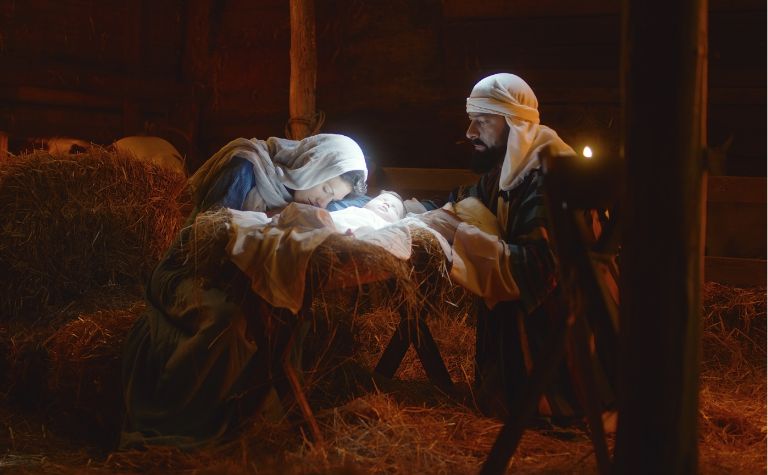The birth of Jesus Christ is a central and revered event in Christian theology.
It signifies the incarnation of God in human form, bringing hope, salvation, and redemption to the world.
What makes this birth even more remarkable is the fact that it was foretold centuries before it occurred in the writings of Old Testament prophets.
In this article, we will explore the prophecies of Old Testament prophets that foretold the birth of Jesus Christ, shedding light on the divine plan that unfolded in the New Testament.

1. Isaiah’s Prophecies
The prophet Isaiah is a central figure in the Old Testament, known for his prophetic insights into the coming Messiah.
Two of his prophecies, in particular, offer profound insights into the birth of Jesus.
Isaiah 7:14 – The Prophecy of the Virgin Birth
Isaiah 7:14 is perhaps one of the most famous prophecies concerning the birth of the Messiah. It states:
“Therefore the Lord himself will give you a sign: The virgin will conceive and give birth to a son, and will call him Immanuel.”
This prophecy is a testament to the miraculous nature of Jesus’ birth.
The use of the word “virgin” in the prophecy signifies that the birth would be supernatural and beyond the ordinary course of events.
Mary’s virginal conception of Jesus, as recounted in the New Testament, aligns perfectly with Isaiah’s prophecy.
In the New Testament, specifically in Matthew 1:22-23, the fulfillment of this prophecy is explicitly mentioned:
“All this took place to fulfill what the Lord had spoken by the prophet: ‘Behold, the virgin shall conceive and bear a son, and they shall call his name Immanuel’ (which means, God with us).”
This prophecy emphasizes the divine nature of Jesus’ birth and underscores the belief that He is not just an ordinary child but Immanuel, God with us.
Isaiah 9:6-7 – The Prophecy of the Child Born to Bring Salvation
Isaiah 9:6-7 provides another prophetic glimpse into the birth of the Messiah:
“For to us a child is born, to us a son is given, and the government will be on his shoulders. And he will be called Wonderful Counselor, Mighty God, Everlasting Father, Prince of Peace. Of the greatness of his government and peace there will be no end.”
The passage continues, “He will reign on David’s throne and over his kingdom, establishing and upholding it with justice and righteousness from that time on and forever.”
These verses describe the attributes and mission of the coming Messiah. He is depicted as a child born to bring salvation, a ruler with authority over an eternal kingdom.
The mention of “Mighty God” and “Prince of Peace” highlights the divinity and peaceful reign of the Messiah.
The New Testament affirms the fulfillment of this prophecy in Jesus Christ. His birth, ministry, and ultimate sacrifice align with the characteristics described by Isaiah.
The belief that Jesus is the “Mighty God” and the “Prince of Peace” is central to Christian faith.

2. Micah’s Prophecy
The book of Micah, authored by the prophet Micah, contains a significant prophecy regarding the birthplace of the Messiah.
Micah 5:2 – The Prophecy of Bethlehem as the Birthplace
Micah 5:2 reads: “But you, Bethlehem Ephrathah, though you are small among the clans of Judah, out of you will come for me one who will be ruler over Israel, whose origins are from of old, from ancient times.”
This prophecy specifies Bethlehem as the birthplace of the Messiah, describing Him as a ruler over Israel with origins dating back to ancient times.
The New Testament confirms the fulfillment of this prophecy in the birth of Jesus.
In Matthew 2:1-6, the arrival of the Magi in Jerusalem and their inquiry about the birth of the King of the Jews lead the chief priests and scribes to cite Micah’s prophecy:
“In Bethlehem of Judea, for so it is written by the prophet: ‘And you, O Bethlehem, in the land of Judah, are by no means least among the rulers of Judah; for from you shall come a ruler who will shepherd my people Israel.'”
The specificity of Bethlehem as the birthplace of the Messiah, as foretold by Micah, is confirmed in the New Testament narrative of Jesus’ birth.
It underscores the meticulous fulfillment of Old Testament prophecies in the life of Jesus.

3. The Prophecies of David and Nathan
The covenant between God, King David, and the prophet Nathan holds a unique place in Old Testament prophecies about the birth of the Messiah.
2 Samuel 7:12-13 – The Covenant Promise of an Everlasting Kingdom
In 2 Samuel 7:12-13, the prophet Nathan conveys God’s covenant promise to King David:
“When your days are fulfilled and you lie down with your fathers, I will raise up your offspring after you, who shall come from your body, and I will establish his kingdom. He shall build a house for my name, and I will establish the throne of his kingdom forever.”
This covenant promise is significant because it foretells a descendant of David who will establish an everlasting kingdom. It speaks to the lineage and royal lineage of the Messiah.
The New Testament reinforces the fulfillment of this covenant in Jesus Christ.
In both Matthew 1:1 and Luke 3:23, the genealogical records trace Jesus’ lineage back to David, affirming His Davidic heritage.
The covenant between David, Nathan, and God underscores Jesus’ rightful claim to the throne and His role as the promised Messiah who would establish an eternal kingdom.
4. The Prophecies of Malachi
The book of Malachi contains prophecies about a messenger who will prepare the way for the Lord.
Malachi 3:1 – The Prophecy of a Messenger Preparing the Way
Malachi 3:1 states: “Behold, I send my messenger, and he will prepare the way before me. And the Lord whom you seek will suddenly come to his temple; and the messenger of the covenant in whom you delight, behold, he is coming, says the Lord of hosts.”
This prophecy foretells the coming of a messenger who will prepare the way for the Lord’s arrival at the temple.
The New Testament connects this prophecy to the role of John the Baptist in preparing the hearts of the people for Jesus’ ministry.
In Matthew 3:1-3, John the Baptist is introduced as the messenger prophesied by Malachi:
“In those days John the Baptist came preaching in the wilderness of Judea, ‘Repent, for the kingdom of heaven is at hand.’ For this is he who was spoken of by the prophet Isaiah when he said, ‘The voice of one crying in the wilderness: Prepare the way of the Lord; make his paths straight.'”
John the Baptist’s ministry aligns with Malachi’s prophecy, as he prepared the way for Jesus’ public ministry, calling people to repentance and preparing their hearts to receive the Messiah.
Conclusion
The birth of Jesus Christ, as prophesied by Old Testament prophets, is a testament to the divine plan that unfolded in the New Testament.
The prophecies of Isaiah, Micah, David, Nathan, and Malachi provide a rich tapestry of insights into the nature and mission of the Messiah.
These prophecies, fulfilled with remarkable precision in the life of Jesus, serve as a foundation for Christian faith, reinforcing the belief that Jesus is the long-awaited Savior who brings hope, salvation, and redemption to the world.
The birth of Jesus, foretold by the prophets of old, is a cornerstone of Christian theology, emphasizing the continuity of God’s plan throughout history.
Related Questions
Joseph, the husband of Mary and the earthly father of Jesus Christ, is depicted in the Gospels as humble, law-abiding, and obedient. In many Christmas scenes, such as in displays of the manger, he is...
The virgin Mary, the mother of Jesus, is one of the most fascinating people in the Bible. For 2,000 years, people of different eras and cultures have marveled at her faith in God. Mary's story in the...
